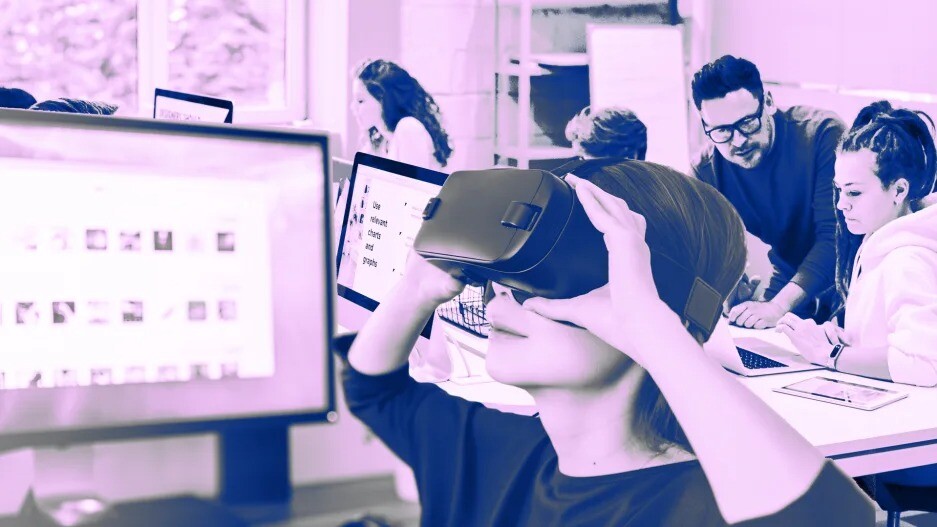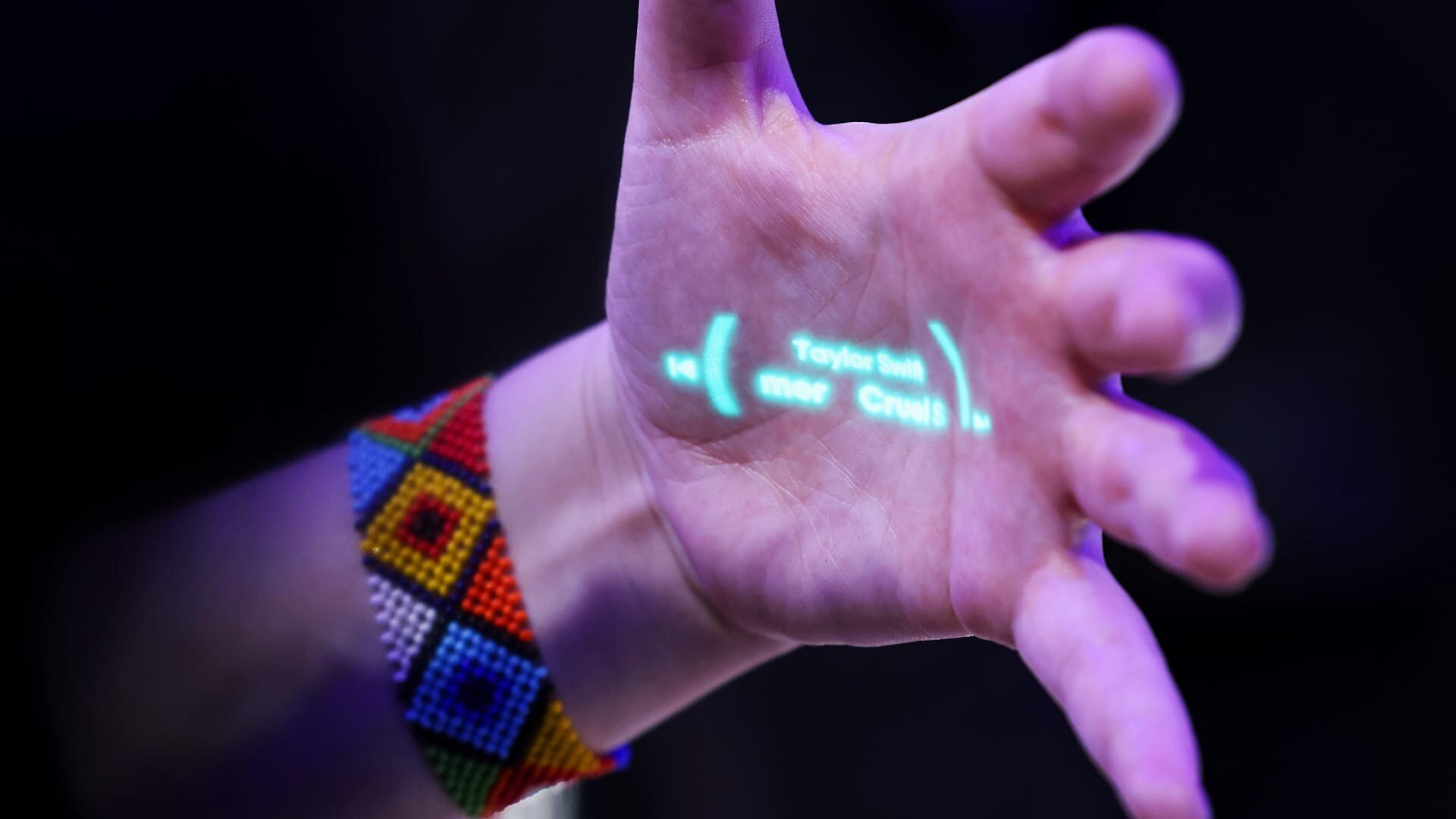- | 9:00 am
This is how you can prepare to work in the metaverse
Knowing how the meta-office will affect your life is the best way to prepare for the future of work.

Love them, hate them, or wish they could have just been an email: meetings remain an essential fixture of life and business in any company. Of all the major paradigm shifts in the world of work over the past three years, the meeting has remained stubbornly crucial. But how you ask your team to meet is evolving, and quickly. And it’s about to enter the metaverse.
While the metaverse is currently in the throes of bad press thanks to the laughably bad unveiling of Meta’s digital environment and Zuckerberg’s nightmarish avatar, it’s still poised to become part and parcel of the future of corporate work and gatherings.
As metaverse offerings improve, these digital spaces will increasingly cater to executives and managers. The endless stream of work-hack apps that your HR department keeps begging you to use won’t go away, but they will migrate into the metaverse via plug-ins. The world of remote work is set to get even more virtual. Knowing how the meta-office will affect your life is the best way to prepare for the future of work.
BYO HEADSET
As remote work cements its position at center stage and employees draw lines in the sand around hybrid models, the metaverse will naturally figure into negotiations.
Instead of a Zoom meeting across multiple time zones, the metaverse offers the possibility for full bicontinental coworking in a common workspace. Employees can don a headset or join a thoughtfully designed virtual room and cowork with a much more satisfying physical nuance and casual proximity than that offered by a video screen. And as with all new technology, it will get progressively better and cheaper.
Providing a headset will become as commonplace as companies providing a work laptop. Not every metaverse will require a headset, but don’t be surprised if, within the next decade, there is an expectation that remote employees have headsets on-hand to hop into the metaverse for a meeting. Just like how the guy talking into his headphones at a coffee shop no longer raises eyebrows, it’s not impossible to imagine that one day, someone using a headset for a quick call will be equally unremarkable. Like video calls, metaverse participation won’t be a 9-to-5 requirement. But it will be a regular occurrence, particularly for more in-depth meetings throughout the week.
AFTER WORK DRINKS ARE NOW GAMING MEETUPS
So you’ve provided your employees headsets and you’ve made it to the meta-meeting. What happens once it’s over? The metaverse, like any platform, is built to keep users engaged for as long as possible.
Instead of vying for a promotion during a round of golf, the metaverse offers your employees a variation on the “third space.” The desire to keep people involved means metaverses for the office will be built to facilitate casual conversation and social interaction.
Right now, gaming is the entry point for most metaverse engagement. Massively Multiplayer Online Role-Playing Games (MMORPGs) are arguably the first iteration of the current metaverse, which has a surprisingly long history. When offices enter the metaverse, they break down the social barrier between Slack and Twitch. We will see more office-centered “organized fun” that mimics the tone and breadth of immersive video games. Knowing how to anticipate and navigate the shifting social obligations of a meta-office will behoove employees.
MEET YOUR METAVERSE COMMUNITY SUPERVISORS
Human resources departments will naturally shift to meet the needs of a company that subscribes to a Metaverse-as-a-Service. Codes of conduct and mission statements will need to change to incorporate metaverse integration. Avatar choice and afterwork gaming guidelines will be built into new-hire orientation.
Although some suspect they’re a bit overhyped, DAOs (decentralized autonomous organizations) do create an organized way to facilitate community decisions. Most metaverse projects are built on the blockchain and offer participation through token ownership, which is a fancy way of saying they operate like the Green Bay Packers. The more tokens you own, the more votes you get.
Unlike shareholders, however, DAOs do not have a central authority making the final call. So what happens if the metaverse your company chooses is facilitated by a DAO? This sets up employees to potentially have a real say in how that metaverse operates.
Potential decisions subject to employee input via a DAO could involve building bigger or more varied virtual meeting spaces or how and where corporate branding is displayed during presentations.
- Will meeting minutes be able to be logged as NFTs on the blockchain?
- Are corporate negotiations held in the metaverse allowed to be recorded?
- Should this metaverse allow its developers to make the necessary changes to incorporate the newest plug-in?
These are the types of things that employees using a corporate-focused metaverse’s DAO might vote on. It benefits forward-thinking business leaders to understand how DAOs work. Now is the time to learn, because things are quickly evolving.
Once corporate metaverse participation becomes as normal as checking your team’s Monday board, there will be a designated manager (probably from HR, at least until Metaverse Community Resources becomes its own department) facilitating the purchase and distribution of the tokens necessary to participate in that metaverse of choice.
This also means when there’s something employees want to see changed, or an experience that needs to evolve, you’ll have a built-in meta-advocate who can propose it to the DAO.
THE OFFICE WILL BE EVERYWHERE
The metaverse is coming to the office, regardless of how entrepreneurs and company leaders feel about it now. The next decade will likely see the development of an entirely new sector of office management to facilitate the inevitable remote and hybrid accommodation of meta-work. Employers who anticipate these changes will be better prepared for success. No matter where in the world you are, you’ll be able to swing by the “office” for a minute.






































